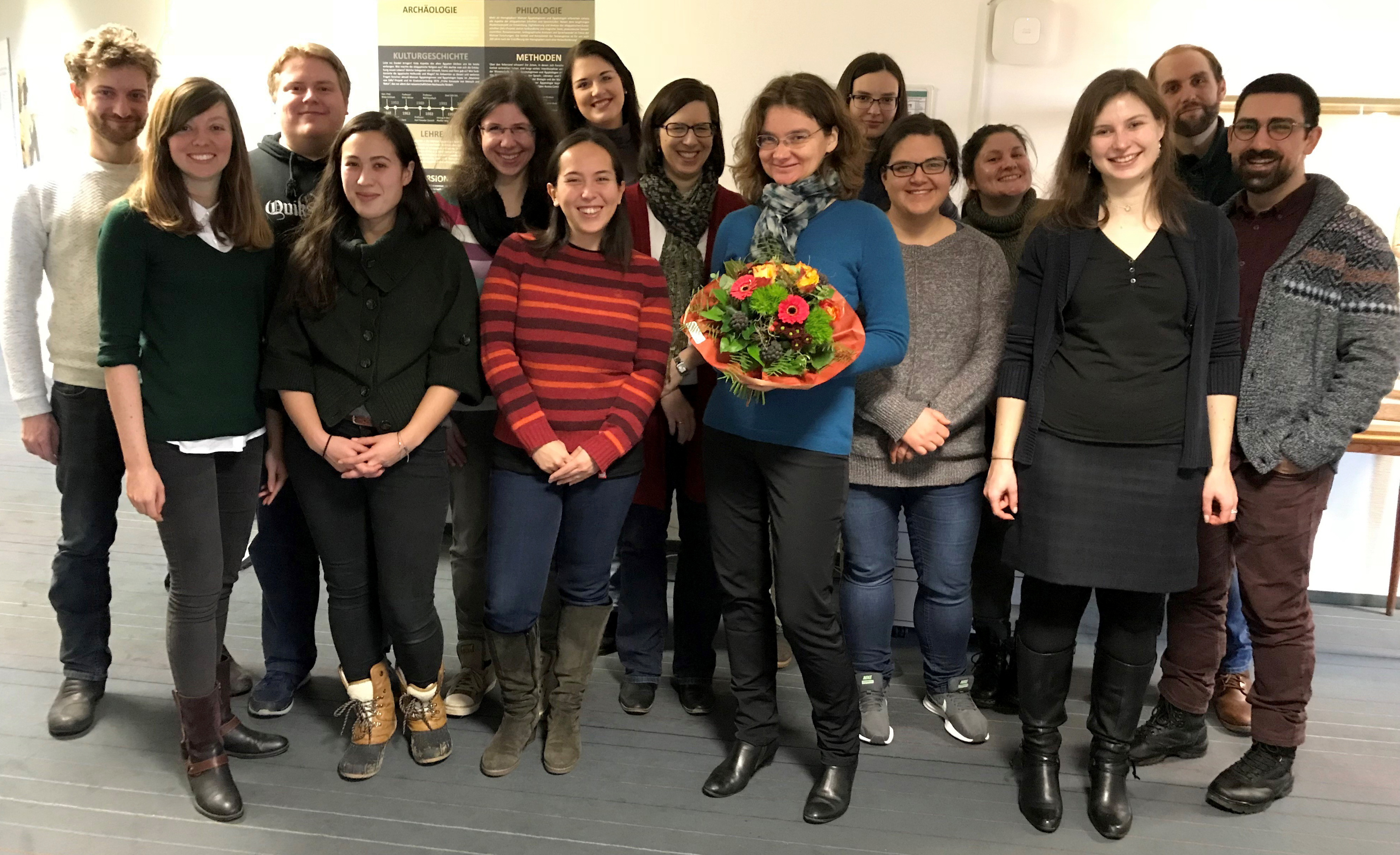Within a structured graduate program, doctoral students study concepts of humans and nature from 100,000 BC to the Middle Ages

The German Research Foundation (DFG) has approved the extension of funding for the Early Concepts of Humans and Nature Research Training Group and will additionally provide ca. 4 Million Euro. The Research Training Group was established at Johannes Gutenberg University (JGU) Mainz in October 2013 to foster junior researchers and to strengthen the understanding of early concepts of humans and nature in the Near East, Northern Africa and Europe. Ten doctoral students from different fields of research have already completed their projects, and 20 further fellows currently work on their doctoral theses.
The Minister of Science Prof. Dr Konrad Wolf has commented: “I am pleased to hear about the extended funding for the Research Training Group and I congratulate everyone who has contributed to this success. One the one hand, this good performance testifies to the research strength of all participating scholars, and on the other hand, it is a significant contribution to the promotion of young researchers at Johannes Gutenberg University. Structurally, the training group plays an important role in making the minor subjects more visible. Funding cutting-edge research and the qualification of young researchers are a high priority for the Rhineland-Palatinate. The Rhineland-Palatinate Research Initiative provides additional financial support to pursue these aims.”
The Spokesperson of the Research Training Group, Prof. Dr Tanja Pommerening, Egyptologist at the JGU Institute of Ancient Studies, has reacted to this news with great delight: “We are happy to know that our research performance has earned recognition and that we can we can continue to work in this promising direction. The special advantage of the second round of funding lies for us in the two postdoctoral positions that have been additionally approved. This brings the promotion of young researchers to the next level.”
The Research Training Group includes professors from diverse branches of the humanities: Pleistocene archaeology, Egyptology, ancient Near Eastern philology, Near Eastern archaeology, classical philology, classical archaeology, German Medieval history, and Byzantine studies, and it cooperates closely with scientific disciplines such as zoology, botany, and geosciences. Within a structured graduate research and training program, fellows of the Training Group focus on the genesis and development of concepts of humans and nature. They study the ways how people from Prehistory to the Middle Ages conceived the primary elements of the world, its creation and end, how they conceptualized natural phenomena, forces, and catastrophes, described flora, fauna, and natural landscapes, and explained the human body, diseases, healing, and death.
During the first round of funding, the chronological framework covered the period from 3200 BC to the Middle Ages. In the second round of funding, owing to the inclusion of Pleistocene archaeology, the framework is extended to 100,000 BC.
Research Training Groups established at higher education institutions to promote young researchers are funded by the DFG for a maximum of nine years. They aim at the qualification of doctoral students within a thematically focused research program and a structured qualification concept. The goal is to prepare the students intensively for the tough market of academic jobs and at the same time to foster their independent research.
Press Release of the German Research Foundation
Press Release of JGU Mainz.
Homepage of the Research Training Group.